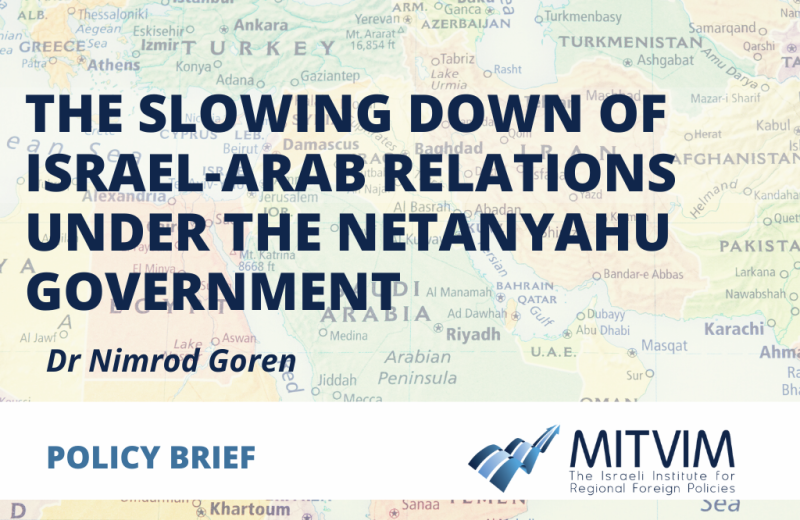
• During the Netanyahu government’s first five months, Israel-Arab ties have slowed down and tensions with the Palestinians have increased.
• Despite opposition to Netanyahu and his coalition, Arab leaders indicated a willingness to engage.
• Arab states have issued warnings or condemned statements, actions, and policies taken by the government or its far-right ministers.
• High-level Israeli-Arab engagement significantly decreased, but practical cooperation continued. ,Minilateral initiatives moved forward, excluding the Negev Forum summit, and preventive diplomacy enabled two regional security summits to be held.
• With Ramadan over, a cease-fire in Gaza, and turmoil in Israel quieting somewhat, there is potential for renewed Israel-Arab engagement and there are already signs this is happening.
• This trend will become more significant if the U.S. prioritizes it. That will require Netanyahu to show greater moderation on the Palestinian issue, limit extremists in his coalition, and further backtrack on democratic erosion. In return, the U.S. should advance regional security summits and the Negev Forum, include a Palestinian component in Israel-Arab cooperative endeavors and normalization
efforts, and encourage the EU’s recent initiative to advance a comprehensive regional peace.
The policy brief was published on “MEI“, on May 25th.


